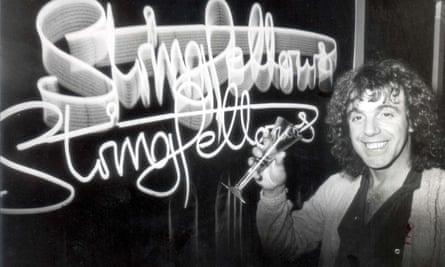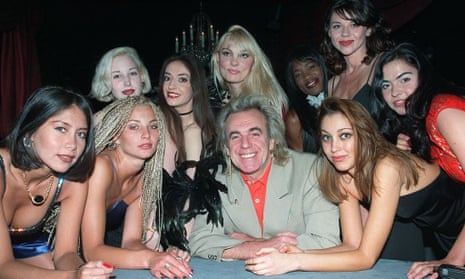Peter Stringfellow exploited women’s objectified bodies for profit, as though they were cuts of meat hanging in a butcher’s shop, and while it would be unseemly to rejoice in his death I do not mourn him, either. He was a pimp. The feminist writer Julie Bindel recalled that she called him a pimp to his face during a radio debate and that he went “berserk” and “demanded she apologise”. I find the prissiness of this astonishing: that this unsavoury sleaze could demean and degrade women so openly for so many years and then be upset to be called on it.
But that’s the thing: the “calling out”, as it’s called today, is considered rude. For some people, alerting them to their prejudices and/or exploitative practices is somehow seen as bad manners. I have no doubt that I will be in for a whole world of internet abuse for writing this piece. If I don’t get at least one rape threat it will be a miracle. There is a certain kind of man who loathes feminists who refuse to silently and passively accept a culture in which young women are paid to take their clothes off for male entertainment. When Suzanne Moore called Hugh Hefner a pimp, he threatened to sue. And yet somehow we’re the snowflakes.
Like Hefner and Paul Raymond, Stringfellow normalised sleaze. He took a sexually repressed society and began to turn it into a pornified one. I grew up in the “post-feminist” 1990s, the peak of laddism, when the corporate sex industry was such a standard part of capitalist consumption that if you challenged it, you were immediately dismissed as a hairy bra-burner with no sense of humour. Women were expected to laugh along when men boasted about getting wrecked and ending up in Stringfellows or Spearmint Rhino. There the foulness was packaged in hard, glossy surroundings; the sleaze was wrapped in shiny. But visit the kind of joint where all you had to do was pop a quid in a pint glass and you would see the industry for what it was.

It all paved the way for the dominance of pornography, for the conduct described by so many women as part of #MeToo and “grabbing them by the pussy”. The objectification rife in strip clubs bled into lads’ mags, a more contemporary version of the old man on the bus pretending to juggle teenage girls’ breasts. It made itself known in the boys at university who thought a grope was a greeting. The idea of consent workshops was mocked, but the lines had become so blurred they were necessary. Feminism was decades old but we were still being treated like meat. Even in this age of #MeToo, it’s still rarely heard just quite how disgusting young women find being drooled over by pervy older men, which happens to us from puberty onwards.
And as Moore wrote last year, part of Hefner’s Playboy mythology was “the idea that women do this sort of thing willingly”. But we all know that for the majority of women in the sex industry, it’s not so much a choice as a way of surviving. A stripper I spoke to once told me that the entire time that she was dancing for male gratification, she would repeat the mantra “fuck you, fuck you, fuck you” in her head. It was her way of coping. And yet, we continue to be told how innocent it all was, how liberating for women. As with Hefner’s death, the accolades and the RIPs come in from men, the pally anecdotes about his “sense of humour”. We hear the eulogising on the Today programme and by ex-lad male journalists who don’t realise how it makes them sound. So for the avoidance of all doubt, before I log off social media for a week: I see you, we see you. You’re disgusting, too. And that stripper’s mantra? She’s not the only one making use of it.

